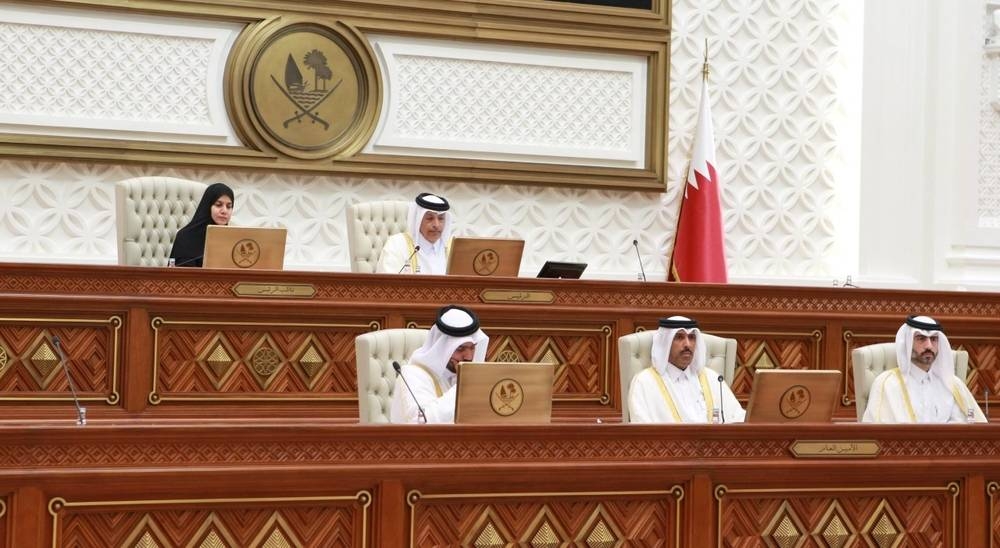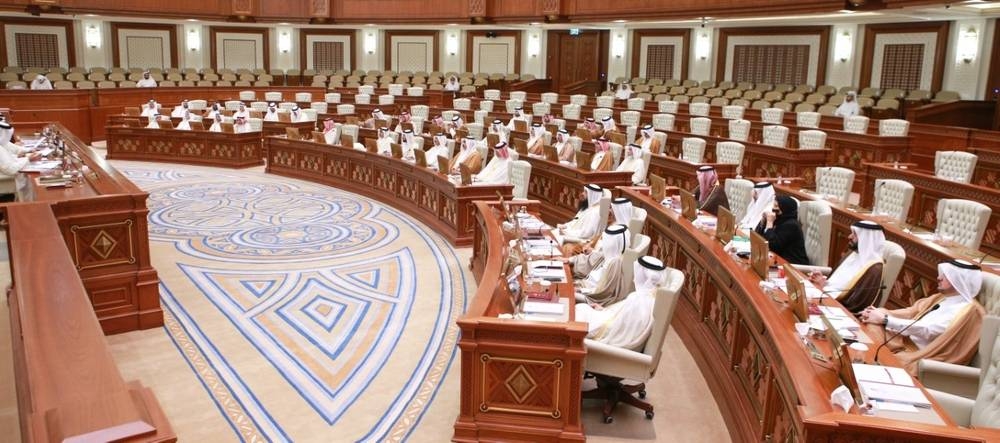The Shura Council has rejected an European Parliament resolution on human rights situation in Qatar, issued on Nov 24, amid the country's World Cup 2022 hosting.
In a statement released at the end of the Council's weekly session, HE the Shura Council Speaker, Hassan bin Abdullah al-Ghanim, said that the resolution was based on false allegations and misleading information and continues the systematic, suspicious and heinous campaigns targeting Qatar over its FIFA World Cup 2022 hosting, expressing ultimate rejection for the resolution and its allegations.
The Council added that the anti-Qatar campaigns went unabated after the World Cup kick-off that saw Qatar warmly welcoming thousands of multi-cultural fans in an atmosphere dominated by enthusiasm and friendliness, a move affirmed by Qatar as a precious opportunity to boost the values of respect, cultural diversity, tolerance, and social inclusion.
The statement also fully rejected the resolution that triggered Qatari people's resentfulness over its disinformation and being part of the anti-Qatar systematic conspiracy schemes.
Despite all Qatar's efforts to host the World Cup along with its measures that were discussed by the European Parliament itself and the Shura Council during mutual visits, the European Parliament favored to back those who reject an Arab and Muslim country hosting the World Cup, a move that discloses hypocrisy, double standards and racism, the statement read.
The European Parliament's stance, based on this resolution, ignites calls of hatred between the East and the West, widens the gaps among cultures, and transcends all humanitarian and cultural values, the statement added, calling on the organisation as representative for the European peoples to promote an anti-hatred speech, back people-to-people efforts that combat it and bolster East-West communication, particularly with the championship bringing together various peoples in an atmosphere dominated by love and respect.
The Shura Council also regretted the organisation's reiteration of baseless and fake allegations, that raise suspicion behind the campaigns, calling for it to further verify and commit to professionalism regarding allegations of casualties among thousands of migrants workers, especially those who supported the country in its World Cup bid in the construction sector.
Those allegations are baseless, and they are repeatedly refuted, not only by Qatar, but by many independent sides as well, the statement added.
The statement highlighted previous statements by General Secretary of the International Trade Union Confederation (ITUC) Sharan Burrow that dismissed a European newspaper's estimates for the deaths among world Cup infrastructure workers as baseless.
Earlier, Qatar put the number of deaths at three, the least compared to all countries that hosted previous World Cups, with Doha adopting the highest safety and security measures in the World Cup and other construction sites, the statement added.
The Council condemned in the strongest terms the European Parliament's intervention in Qatar's internal affairs, rejecting diktats and attempts to alter the Qatari people's entrenched moral values, stressing that the free exercise of religion in Qatar goes in line with the Universal Declaration of Human Rights.
Qatar has never seen, over its history, a discrimination based on religion, the Council said, highlighting the establishment of a Religious Complex as an example of the country's guarantee for non-Muslims to freely exercise their religious rites.
The Council stressed that Qatar and its people, nationals and residents, respect the cultures, orientations, and beliefs of other countries, including European countries, and therefore it expects other countries to respect Qatar's culture, values, and social and religious beliefs.
Qatar is an independent country that neither accept any dictates from others, nor moral lessons from anyone, the Council added.
Rejecting the European Parliament's calls for Qatar to boost gender equality and intensify efforts to increase the representation of women in the official labor market, the Council hailed Qatar's equal employment opportunities that brought Qatari women to senior executive and management positions, adding that women constitute more than 40% of the work force in all fields, especially in education, health and social work.
While Europe, and the West in general, undergo a gender pay gap, Qatar never saw inequalities between wages of men and women, the Council said, calling on the European Parliament to follow up on this matter, reiterating the Qatari people's ultimate rejection of the West's double standards on the Arab region.
The Council slammed the organisation's bribery and corruption allegations regarding Qatar's World Cup bid, highlighting comments by then Chairman of FIFA's Ethics Committee Hans-Joachim Eckert in 2014 in response to a report by US investigator Michael Garcia.
Eckert affirmed that there would be no reconsideration or new vote on granting Russia and Qatar the 2018 and 2022 World Cup bids respectively.
Referring to a FIFA Ethics Committee investigation into corruption allegations relating to 2018 and 2022 World Cup bids, under the chairmanship of Garcia, the Council said that resurfacing this issue, although those allegations were officially denied in 2014 through documented and independent investigations, raises suspicions about the real motives behind the move.
The Council added that although the European Parliament's decision supported Qatar's recent efforts to improve labor rights, and reluctantly welcomed Qatar's $320mn payment through the Workers' Support and Insurance Fund, it insisted on interfering in Qatar's internal affairs demanding the expansion of the fund and the full implementation of reforms, stressing that this proves his bias towards the anti-Qatar schemes.
The Council recalled Qatar's 12-year efforts that harnessed all its material and human capabilities, to welcome the peoples of the world and organize a perfect tournament that brings East and West together.
At a time when many institutions and personalities announced that FIFA World Cup Qatar 2022 was the best in history, the allegations of Qatar's ineligibility to host the tournament along with allegations that the World Cup bid in 2010 was not transparent and lacked a responsible risk assessment, affirms the decision sought to distort the championship, adopt a hostile approach and participate in the systematic conspiracy schemes against Qatar, the Council added.
The Council highlighted statements by the President of the Inter-Parliamentary Union, Duarte Pacheco, that hailed Qatar's great efforts at various levels, to prepare and host the World Cup .
Addressing the 145th IPU Assembly in the Rwandan capital Kigali in October, he appreciated Qatar's decision to dismantle 170,000 seats and giving them to developing countries as an assistance to improve the sports infrastructure of those countries, noting that this decision supports the goals of sustainable development and contributes to enhancing the opportunities of developing countries.
He also expressed his satisfaction that the 2022 edition is committed to health and environmental aspects as it will be the first carbon-neutral championship," stressing that these measures support Qatar's approach towards mitigating the effects of climate change and preserving the environment.
On behalf of the Qatari people, the Council expressed its complete rejection of the European Parliament decision, calling on it to respect the peoples' aspirations and desires, and not to get involved in malicious campaigns targeting Qatar's World Cup hosting.


